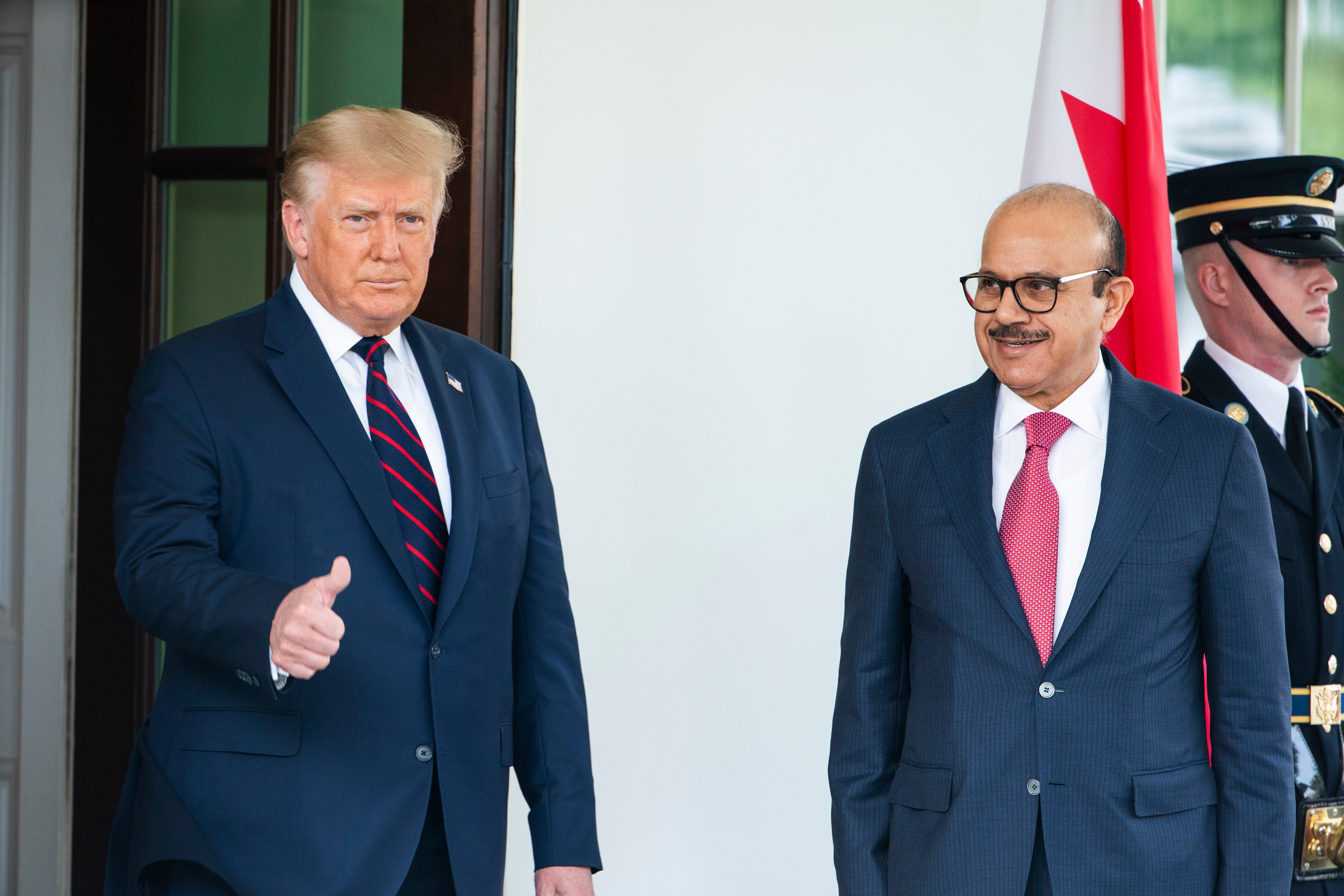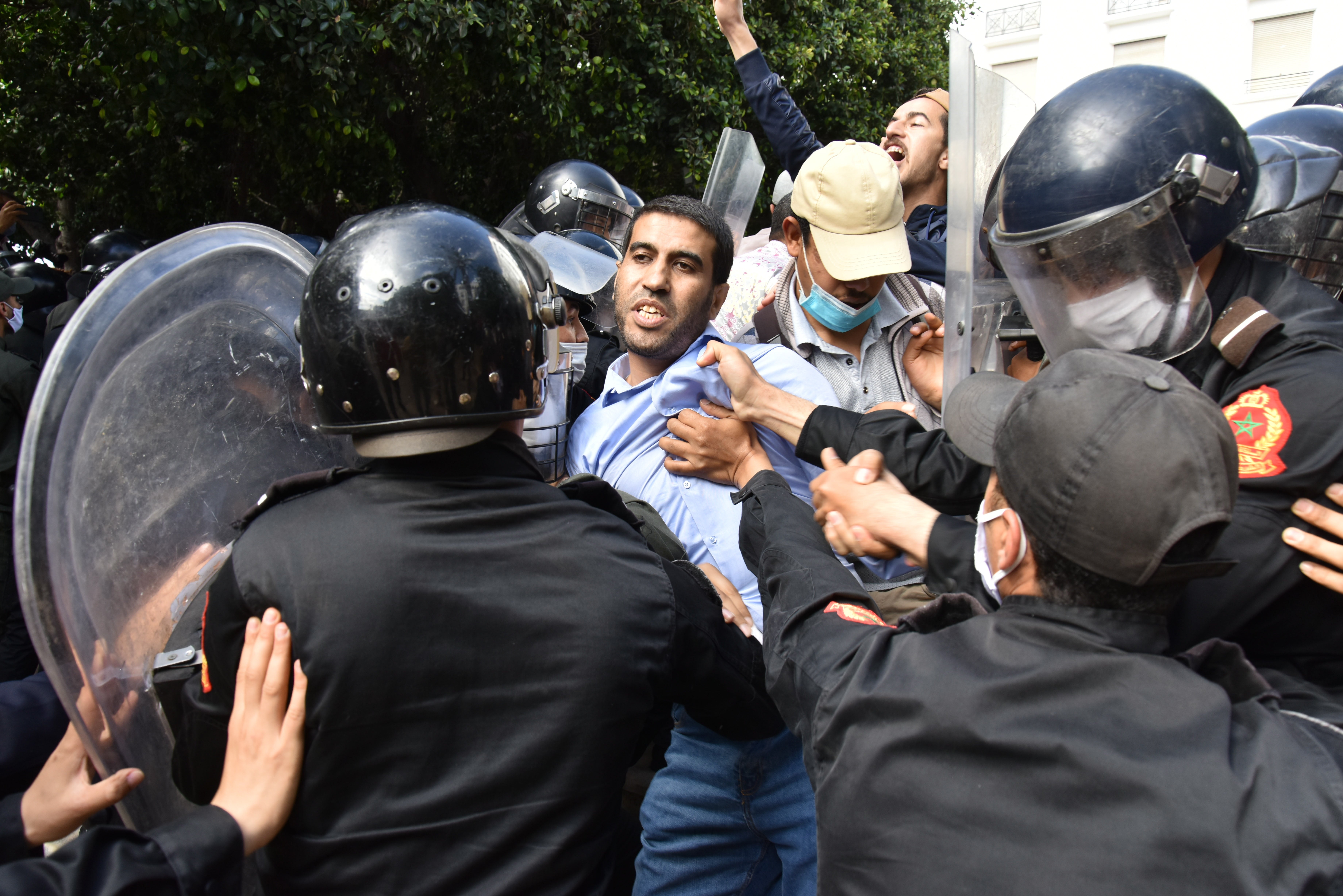Not worth the paper they are written on: Israel-Gaza conflict shows limit of Abraham Accords
Hailed a few months ago as a groundbreaking Middle East peace deal, the agreements are instead already looking like a footnote in history, reports Borzou Daragahi


Your support helps us to tell the story
From reproductive rights to climate change to Big Tech, The Independent is on the ground when the story is developing. Whether it's investigating the financials of Elon Musk's pro-Trump PAC or producing our latest documentary, 'The A Word', which shines a light on the American women fighting for reproductive rights, we know how important it is to parse out the facts from the messaging.
At such a critical moment in US history, we need reporters on the ground. Your donation allows us to keep sending journalists to speak to both sides of the story.
The Independent is trusted by Americans across the entire political spectrum. And unlike many other quality news outlets, we choose not to lock Americans out of our reporting and analysis with paywalls. We believe quality journalism should be available to everyone, paid for by those who can afford it.
Your support makes all the difference.Just a few months after a group of Arab states normalised relations with Israel, they are backing away from the country as its reputation plummets across the world over its offensive in the Gaza Strip and its treatment of Palestinians.
A virtual meeting on Monday between the main business association of Morocco, which penned a normalisation deal with Israel last year, and the Federation of Israeli Chambers of Commerce to discuss “business and investment opportunities in Israel” was postponed.
Flights connecting Tel Aviv and the two main cities of the United Arab Emirates, which was a cornerstone of the Abraham Accords forged last year between Israel and two wealthy Arab monarchies, have been suspended in part because of security worries.
Prince Faisal bin Farhan, foreign minister of Saudi Arabia, which has been seen as the next Arab country to normalise ties with Israel, took a lead role at a summit of the Organisation of Islamic Cooperation on Sunday in condemning the “flagrant violations” of Palestinian rights by Israel’s security forces and "forcible eviction” of Palestinians from east Jerusalem.
More likely than not, the flare-up of violence in Israel, Gaza and the West Bank will be a speed bump on the years-long path of improved ties between American-backed autocratic regimes and Israel. But those countries that were enticed or cajoled into improving ties by the administration of Donald Trump and his son-law-law Jared Kushner now find themselves in a tight spot.
“The risk now is that Arab states that normalised with Israel bought this mess and now have to live with it,” says Tamara Cofman Wittes, a former US State Department official now at the Brookings Institute.
The pressure is especially intense in countries where authorities are subject to a measure of democratic accountability. In Sudan, which was pressed by the Trump administration to establish diplomatic ties with Israel in January in order to remove sanctions, pro-Palestinian rallies have erupted. The country’s interim president, Abdel Fattah al-Burhan, is on the defensive, insisting his government’s decision did not undermine the Palestinian cause.
“What is happening in Gaza against defenceless civilians is regrettable,” Burhan told the France 24 news channel on Monday. “[But] normalisation has nothing to do with the right of Palestinians to create their own state.”
However, the conflict between Israelis and Palestinians is stoking the tensions between a Sudanese public strongly supportive of the Palestinian cause and a military junta serving as a transitional authority following the 2019 toppling of the country’s long-time ruler in a popular uprising.
“There is a huge gap between the interim government and the street,” says Andreas Krieg, a Middle East specialist at King’s College.
Even stolid Arab autocracies that have improved their ties with Israel over the years are feeling pressure amid images of Palestinian civilians killed in Israeli air strikes. In Qatar, an absolute monarchy that never signed a peace deal with Israel but has maintained cordial ties and regular communications with the country, including helping pay for wages and utilities in Gaza, thousands of people waving Palestinian flags gathered in a rare protest. Protests have also erupted in Oman, which has similarly warm but discreet ties to Israel.
There is no indication that the Israeli offensive against Hamas in Gaza or its alleged treatment of Palestinians in Jerusalem is prompting major security worries in the way the 2003 United States invasion of Iraq destabilised the Muslim world. No nation has yet faced serious pressure to downgrade ties with Israel over the crisis. But there are hints that countries are having second thoughts about normalisation.
“The pressure of the street has been underestimated in all the capitals that normalised with Israel,” says Krieg.
Analysts have noted appreciable shifts in government positions on the conflict as it has dragged on and made waves on satellite television channels and social media, potentially adding to Israeli pressure to conclude its Gaza operations, though that has been so far resisted.

In addition to cancelling or postponing the trade conference with Israel, Morocco has nixed a planned visit by Israeli officials this month to discuss direct flights between the two countries. After giving the conflict limited coverage, state media has begun focusing on it. Politicians close to the Islamist-rooted ruling party have attended protests calling for an end to normalisation with Israel.
Krieg says the normalisation deals lack teeth and could easily be dismissed if they got too politically expensive. “If it turns out to mobilise the street, they have the argument they can make that this is just a piece of paper,” he says.
The calculation may be different for the UAE, which has far more vested in the normalisation deal as a way of strengthening its ties to pro-Israel Washington figures and securing access to sensitive cutting-edge military and security technologies. For Crown Prince Mohammed bin Zayed, de facto ruler of the UAE, the positives of the relations with Israel far outweigh any negatives.
“The UAE would not allow the Israeli-Palestinian conflict to get in the way of its pursuit of relations with Israel,” says Wittes.
Join our commenting forum
Join thought-provoking conversations, follow other Independent readers and see their replies
Comments